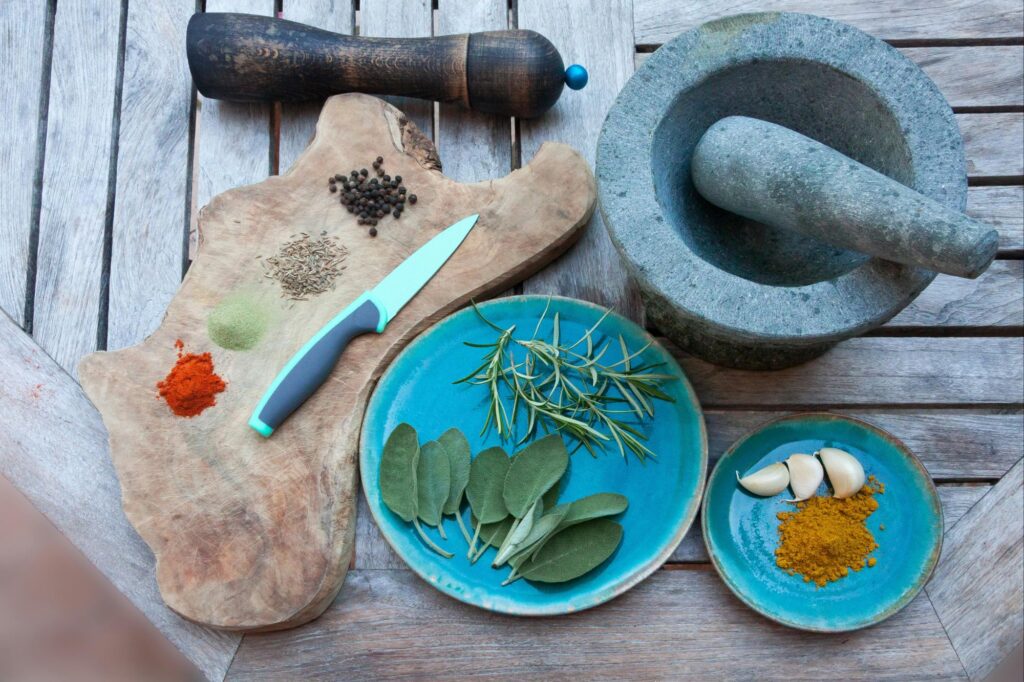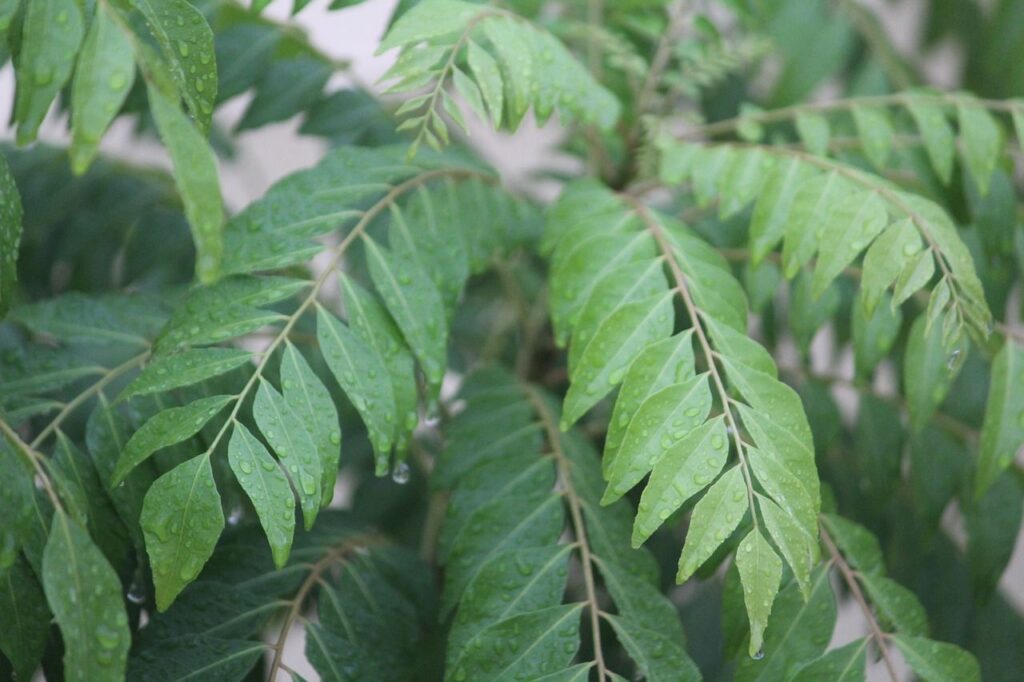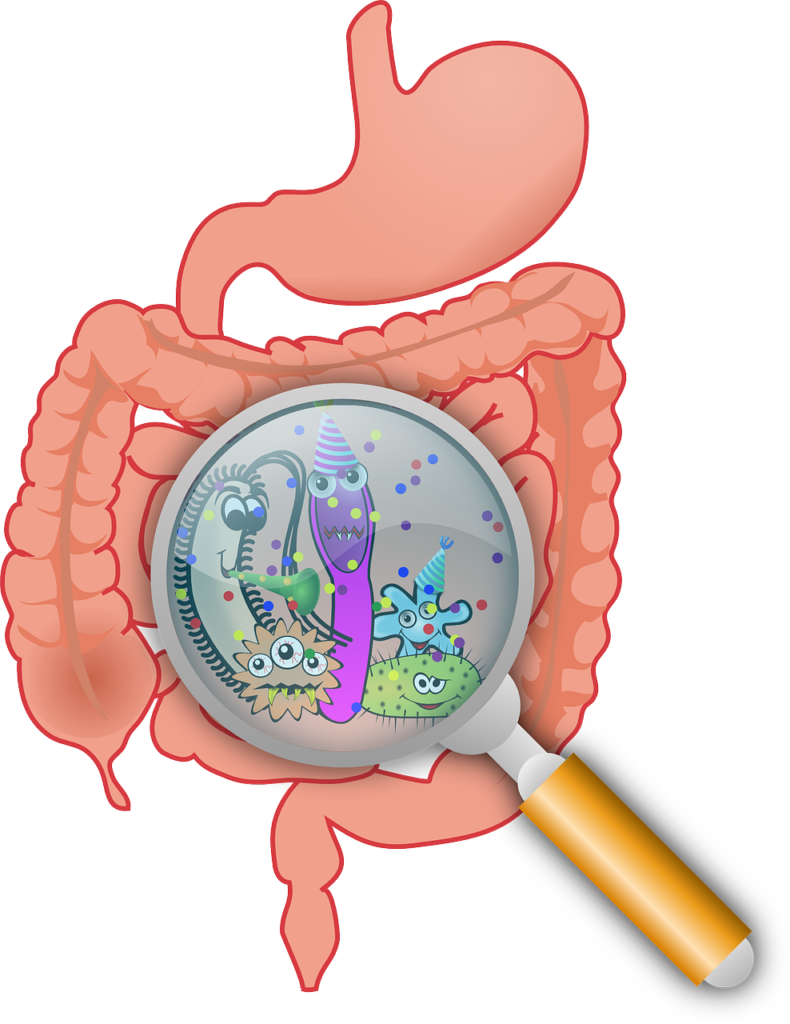Many people dislike curry leaves, which are added to food for flavor. Did you know that the medicinal chemicals in them are also valued for their healing properties? Let’s learn about the benefits of curry leaves.
Benefits
The curry plant, belonging to the Rutaceae family, can grow readily almost anywhere. Its scientific name is Murraya koenigii, and its leaves have a distinctive fragrance. Most Indians liberally use it in their home cooking.
Curry leaves can help alleviate abdominal pain caused by bile, nausea, diarrhea, vomiting, and loss of taste. Agathiyar said in our Gunavagadam book to remove excess bile, which can contribute to various ailments. As the saying goes,
“வாயினருசி வயிறுளைச்சல் நீடுசுரம் பாயுகின்ற பித்தமும் என்பண்ணுங் காண்-தூய மருவேறு காந்தளங்கை மாதே! உலகிற் கருவேப்பிலை யருந்திக் காண் .
Furthermore, excess bile can lead to a deficiency of the melanin pigment responsible for hair color, wrinkles on the skin, and eye damage.


Chemical constituents
Carbazole alkaloid is the main reason for the medicinal properties of curry leaves. It destroys cell-damaging free radicals and prevents disease in the body. It contains Vitamin C which naturally boosts immunity, and beta-carotenoids, a source of vitamin A, which help to improve eyesight and prevent eye and skin aging. It also contains chemicals like terpenoids, flavonoids, and phenolics.
It also contains mineral salts like iron, calcium, and phosphorus, which are necessary for various bodily functions. The iron content in it reaches the body in a higher amount compared to other food items, making it a beneficial food for people with anemia.
The natural pigments in it may have properties that could help prevent cancer.
Methods of use:
- Digestive Health: Curry leaves are believed to aid digestion by stimulating digestive enzymes and promoting bile flow. Consuming the leaves, roots, or bark can help relieve tastelessness and dysentery
- Mantha, manthabethi, malathodam, malakatu (constipation), and kragani (amoebiasis): Dry curry leaves in the shade, grind them with pepper, salt, cumin, and sukku mudaviya into a powder. Mix the powder with rice and a little ghee, and consume it.
- Vomiting in children: Grind curry leaves and breast milk together. Add powdered cloves and dill, and administer this mixture 2-3 times to stop vomiting.
- Nausea and hunger in children: Fry a few curry leaves and 2-3 peppercorns in ghee. Grind them with hot water, dissolve the mixture, and give it to children.
- Hair health: Curry leaves are believed to nourish the scalp and promote hair growth. Applying a paste made with curry leaves boiled in coconut oil to the head is said to reverse premature graying and promote thick, black hair growth. They are also used to treat dandruff and prevent hair loss.
- Blood Sugar control: Curry leaves may help regulate blood sugar levels and improve insulin sensitivity, potentially benefiting individuals with diabetes or prediabetes. Traditionally, consuming two curry leaves on an empty stomach every morning is believed to aid in blood sugar control.
- Antioxidant activity: Curry leaves are rich in antioxidants, which help protect cells from damage caused by free radicals. Free radicals are unstable molecules that can contribute to the development of chronic diseases like heart disease, cancer, and Alzheimer’s disease.
- Eye health: Curry leaves are believed to be good for eye health and may help to prevent cataracts and other age-related vision problems
Curry Leaves Powder:
Ingredients:
Curry leaves – 200 grams (dried)
Chana dal – 2 teaspoons
Urad dal – 2 teaspoons
Salt – To taste
Black sesame seeds – 1 teaspoon
Asafoetida powder – 1 teaspoon
Dried red chilies – 5
Instructions:
- Dry roast the sesame seeds, chana dal, and urad dal separately in a pan without oil until they turn golden brown.
- Roast the curry leaves on low heat until they turn crispy.
- Grind the roasted chana dal, urad dal, and asafoetida powder in a mixer.
- Add the roasted curry leaves and sesame seeds to the mixer and grind into a fine powder.
- Mix this powder with rice and a little ghee to enhance appetite. It also helps to relieve anorexia, indigestion, and constipation.
Benefits for Pregnant Women:
During the first three months of pregnancy, women often experience anorexia, abdominal bloating, and food aversion due to digestive problems. To alleviate these symptoms, you can consume a small amount of curry leaves powder mixed with rice.
Overall Benefits:
This curry leaves powder is especially beneficial for stomach-related disorders and can prevent various ailments, ranging from common stomach ulcers to intestinal cancer.
Curry Leaf Chutney:
Ingredients:
Required amount of curry leaves
Dried red chilies
Tamarind
Garlic
Ginger
Roasted gram
Instructions:
- Roast all the ingredients until fragrant.
- Grind the roasted ingredients into a chutney.
- Serve the chutney with idli, dosa, curd rice, or other dishes of your choice.


Curry Leaf Vadagam
Ingredients:
Pepper (Piper nigrum)
Coriander (Coriandrum sativum)
Turmeric (Curcuma zedoaria)
Mace (Myristica fragrans)
Salt (Sodium chloride)
Curry leaves (Murraya koenigii)
Instructions:
- Take all the ingredients in equal proportions.
- Add water and grind them into a paste.
- Roll the paste into small balls of about one gram each.
- Consume the balls as needed.
Benefits:
Loss of appetite
Diarrhea
Digestive problems.
Medicinal Uses of Curry Leaves in Siddha Medicine:
- Curry leaf powder
- Curry leaf fritters
- Madhumega Chooranam – A medicine given to diabetic patients
In addition to incorporating curry leaves in our diet, let us consume them daily to lead a disease-free life.


Disclaimer: All these medicines are given for knowledge purpose only. Kindly seek the consultation of Siddha Physician for proper treatment. Consult a healthcare professional before consuming curry leaves. Curry leaves are generally safe for most people to consume in moderation. However, some people may experience allergic reactions to curry leaves.


Dr. Augastina B.S.M.S., PGDY, is a passionate Siddha Doctor with a heart of gold. She believes in healing one step at a time. In her writing, you’ll find not just knowledge, but genuine care and a holistic approach to health and well-being.

